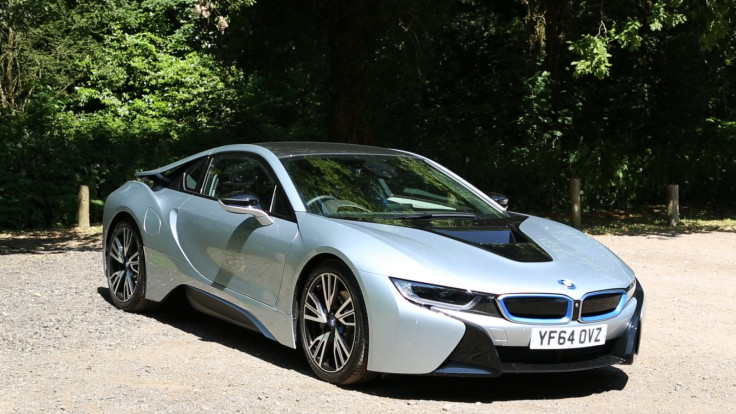'It is a paradigm shift': How BMW is switching from car maker to autonomous mobility company

A 'paradigm shift' in technology is causing BMW and the car industry as a whole to rethink its entire business model. Speaking to IBTimes UK at the Geneva motor show, Stefan Ponikva, head of marketing in BMW's i division, explained how the company was transitioning from car manufacturing to mobility provider.
The move is one echoed by much of the auto industry, which spent a century selling cars with five or 10-year update cycles, but must now adapt and prepare to offer cars on subscription services which can be updated and improved over the internet. The near future, Ponikva says, will still see BMW sell cars with all-important 'driving pleasure', but also offer a fully autonomous mode for driving in traffic, or on long motorway journeys.
A change in mindset about what a car - and a car company - should be was initiated when cars began to have their own internet connections a few years back, and now BMW is already preparing to transform the automobile from a personal transport tool into a 'mobility solution' with upgradeable software and the ability to talk to other vehicles and the surrounding environment. Future BMWs will become "your internet-of-things cockpit", Ponikva explains. "It will be your command centre to connect the dots."
These dots represent different areas of our lives, all loosely connected but which currently do not communicate with each other as efficiently as they could. BMW sees a future where your car communicates with your smartphone, your digital calendar and address book, your work email and your travel plans, to make itself - or a more suitable vehicle - available where and when you need it.

"Later this year we will introduce a future service system ... a new mobility service is coming this year," Ponikva teases without adding further details. When pushed, he reveals that car ownership is "definitely" moving towards a subscription model like Netflix and Spotify, where a range of vehicles can be accessed for a flat fee, but not actually owned by the driver.
Ford shares this vision, revealing recently to IBTimes UK that it was working on a similar service. Ken Washington, vice-president of research and advanced engineering at Ford, said a "Spotify-style" subscription model was in the works, along with fully autonomous shuttles which fit somewhere between a private taxi and a public bus.
Driving pleasure
BMW also wants to bring full autonomy to the public road, but in a way which preserves the company's DNA, its desire to build cars which are fun to drive. Ponikva explains: "Google is keen to make a driverless car like a robot taxi, they are not interested in the driver and are not interested in giving pleasure to the driver.
"Our perspective is, no matter if it's the i8 [sports car] or a 2-Series, there are certain moments in your life when driving is not pleasurable ... so at these certain times, in the future, you will be able to disconnect your brain from the car, then the car is doing the driving."
Ponikva stresses that it is "so important" to BMW that its cars remain fun and engaging to drive, while also offering full autonomy when the driver requires it - as opposed to Google's concept, which is hoped to eventually contain nothing but a start/stop button and no conventional controls at all.
"We will stick so clearly to driving pleasure, that is our DNA, but on a Monday morning going to work it's horrible. You could use this time to be more efficient besides selling cars, there will be business opportunities and use cases which have not been implemented yet, like the robot taxi. We are also, technology-wise, looking at this and we are not so far away from achieving it."
© Copyright IBTimes 2025. All rights reserved.






















